Session 4: Improving critical ocean and Earth observations
Tuesday, 3rd December 2.00PM AEST | Breakout session
This panel will highlight best practices in ocean and Earth observation research infrastructures, focusing on strategies to enhance cross-border coordination. Key topics include improving the integration of ocean and terrestrial observation systems, advancing sea level rise forecasting, and exploring the future of ocean and Earth monitoring technologies. The session will showcase innovative weather monitoring techniques, such as the deployment of Argo floats for ocean profiling, the use of autonomous vessels for data collection, and the implementation of emergency response systems for tsunamis. Join us to learn how these coordinated efforts are advancing our understanding of the Earth’s systems and informing global environmental management.
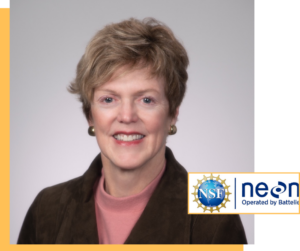
Moderator
Dr Paula Mabee joined Battelle in early 2020 as the National Ecological Observatory Network’s (NEON) Chief Scientist and Observatory Director. She oversees the alignment of NEON science with the research needs of an interdisciplinary scientific community and directs engagement through a broad array of partnerships and programs. Paula is an Emeritus Distinguished Professor in Biology at the University of South Dakota. She served the US National Science Foundation (NSF) as Division Director for the Division of Environmental Biology from 2015-2017. Paula holds Bachelor of Arts in Biology and Religion from St. Olaf College and a Ph.D. in Zoology from Duke University.
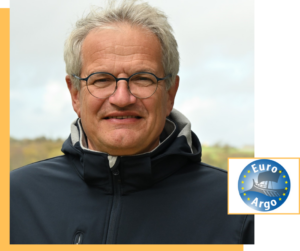
Panellist
Dr Yann-Hervé De Roeck is heading Euro-Argo European Research Infrastructure Consortium, the structure coordinating Europe’s contribution to the Argo network of autonomous floats, which provides a synoptic measurement of essential physical and biogeochemical parameters in the global ocean. His background is high performance numerical modelling that he applied in various marine domains in his career at Ifremer. His experience with research infrastructures also encompasses creating and directing a public-private research institute devoted to marine offshore renewable energies.
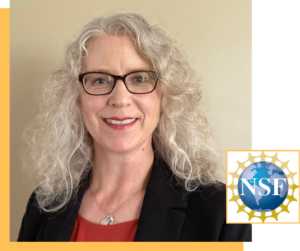
Panellist
Dr Shelby Walker returned to the U.S. National Science Foundation in 2021 as the Senior Advisor for Facilities in the Directorate for Geosciences (GEO). She oversees the major research infrastructure in GEO, including the Academic Research Fleet, the geophysical networks, the National Center for Atmospheric Research, and research infrastructure in the Arctic and Antarctic. Her previous tenure at U.S. NSF was as a program officer responsible for the final design and transition to construction of the Ocean Observatories Initiative, a network of science-driven ocean observing platforms and sensors in the Atlantic and Pacific Oceans. She holds a Ph.D. in marine science from the Virginia Institute of Marine Science/College of William and Mary, an M.B.A from Oregon State University, and a B.A. from Wesleyan University.
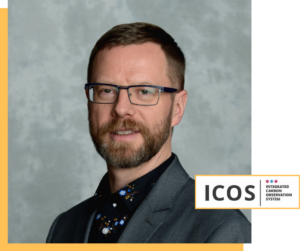
Panellist
Dr Emmanuel Salmon is Head of Strategy & International Cooperation at Integrated Carbon Observation System (ICOS). After ten years as a researcher, he worked as a communications specialist (internal comms and press relationships) for a French HEI in Paris (1999–2008), then as a scientific attaché at the French embassies in Finland (2008–2012) and Sweden (2012–2016). He joined ICOS in 2017 to reinforce and expand international connections, with a special focus on Africa.
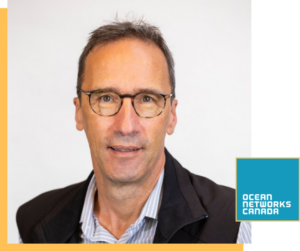
Panellist
Benoît Pirenne is Ocean Networks Canada’s Corporate Innovation and Technology Officer (CITO). He joined the University of Victoria in October 2004 to build the Data Management and Archiving System for the NEPTUNE Canada and VENUS observatories. In this outward-looking role with a focus on ONC’s current needs, Benoît focuses on bringing about the rapidly evolving technologies, both digital (AI/ML, underwater communications) and physical (nodes, smart cables, mobile systems, new sensor types) that will position ONC to remain as a global leader. His position will serve as sponsor for major initiatives (e.g., P-ONE, node replacement). In addition he oversees the Canadian Integrated Ocean Observing System — Pacific Regional Association, and the World Data System — International Technology Office. Previously, Benoît spent 18 years at the European Southern Observatory (ESO, Munich, Germany), a leading Organization for astronomical research.
We acknowledge the Traditional Owners of the lands and waters throughout Australia, and pay respect to the Elders past, present and emerging. We recognise the importance of connection to culture, land, kinship and community to the health and wellbeing of Aboriginal & Torres Strait Islander families. We acknowledge the cultural practices and traditions still carried out today and being passed down to future generations.


